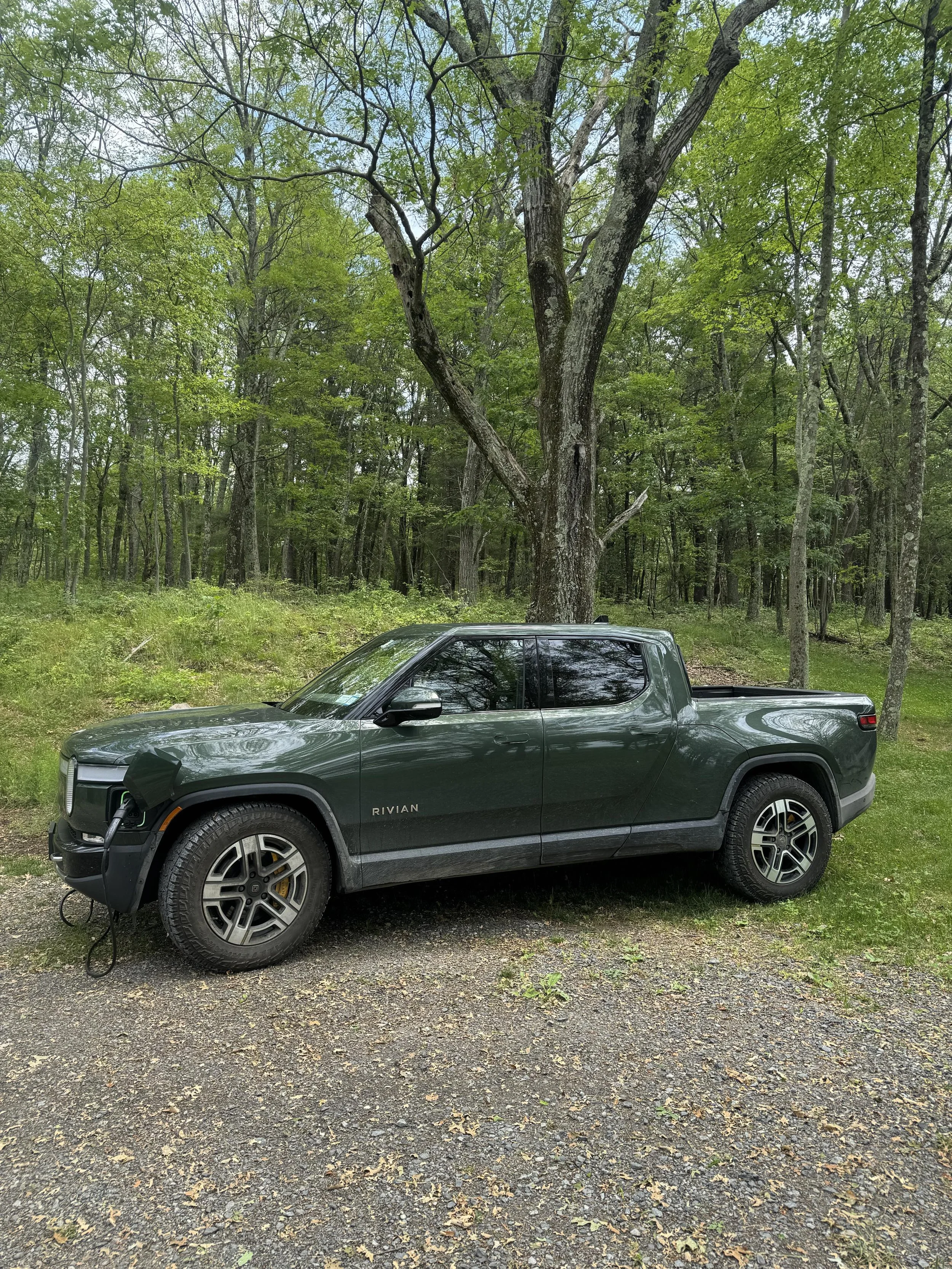Exploring Electric Vehicles on the Farm: Our Experience with the Rivian R1T and Ford F150 Lightning
As a working farm committed to sustainability and innovation, Wally Farms has embraced the use of electric vehicles (EVs) to reduce our carbon footprint and improve operational efficiency. In this blog post, we'll share our experiences with two popular electric trucks: the Rivian R1T and the Ford F150 Lightning. We'll discuss the pros and cons of driving all-electric vehicles from our perspective, highlighting the unique challenges and benefits we've encountered.
The Rivian R1T boasts impressive torque and power, making it well-suited for the demanding tasks on a farm. Its all-wheel-drive capabilities provide excellent traction on various terrains, essential for navigating our diverse landscape. The R1T is packed with advanced technology, including a versatile gear tunnel, integrated air compressor, and multiple drive modes tailored for off-road and on-road conditions. The spacious and luxurious interior offers a comfortable driving experience, even during long hours of farm work and deliveries.
However, we've experienced some maintenance challenges with the Rivian R1T. Issues with the factory tonneau covers breaking have caused significant inconvenience, with repairs taking over a year to implement. After the tailgate was backed into by an unknown vehicle, the damage was extensive due to the electrical and video lines integrated into it, resulting in costly and complex repairs. The truck's torque and power have led to uneven tire wear, necessitating continuous tire rotation to manage the problem. Additionally, the 12V battery can only be replaced by Rivian-certified technicians, limiting our ability to perform quick fixes and leading to downtime. Body work and repairs can only be conducted by Rivian-certified technicians, which can be logistically challenging and time-consuming, especially in rural areas.
The Ford F150 Lightning, on the other hand, retains much of the familiar feel of a traditional Ford pickup, potentially designed to not alienate the current customer base. This familiarity makes it easier for our team to transition to using an electric vehicle without a steep learning curve. The Lightning offers strong performance and reliability, handling farm tasks with the robustness we've come to expect from Ford trucks. Its towing and payload capacities meet our needs, making it a versatile tool in our daily operations. However, compared to the Rivian R1T, the F150 Lightning might feel less innovative and lacks some of the cutting-edge features found in its competitor. This simplicity can also be viewed as an advantage, providing a straightforward, reliable workhorse without the complexities of high-tech bells and whistles.
We also have Teslas in our fleet, which offer a mixed bag of experiences. Tesla vehicles are known for their cutting-edge technology, providing a futuristic driving experience. They offer excellent range and efficiency, making them ideal for certain farm tasks and commuting. However, body work and repairs can only be performed by Tesla-certified technicians, which can be a significant drawback in terms of convenience and cost.
At Wally Farms, we're always looking for ways to innovate and improve our sustainability practices. In line with this, we are eager to test and trial electric tractors from leading manufacturers. We are particularly interested in Case International, known for their reliable and powerful agricultural machinery; Soletrac, a pioneer in electric tractors; and Monarch, the world's first autonomous electric tractor. We are excited to explore the potential of these electric tractors on our farm.
Additionally, we exclusively use electric UTVs for errands around the farm, utilizing both HiSun and Polaris brands. These vehicles are an effective means of transportation off-road and in farm fields, helping us further reduce our carbon emissions while maintaining efficiency in our daily operations.While electric vehicles offer numerous benefits, including reduced emissions and advanced technology, they also come with challenges, particularly in terms of maintenance and repairs. The Rivian R1T stands out for its high-tech features and powerful performance but requires patience and access to certified technicians for repairs. The Ford F150 Lightning provides a more familiar and reliable experience, albeit with fewer innovations.
At Wally Farms, we continue to evaluate the best options for our needs, balancing sustainability with practicality. As the EV market evolves, we look forward to seeing improvements that address these challenges, making electric vehicles even more viable for hardworking environments like ours. For more insights into our sustainable practices and innovations, visit our website or contact us directly. Together, we can drive towards a greener future.
Feel free to share your thoughts and experiences with electric vehicles in the comments below. For more information about our farm and sustainable initiatives, check out Wally Farms Opportunities. Join us in embracing the future of farming and sustainable living at Wally Farms!





